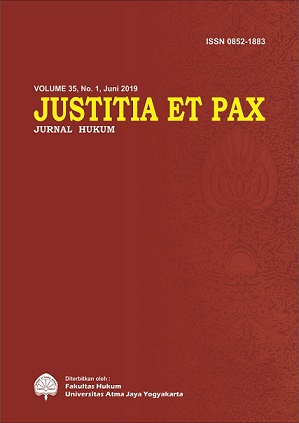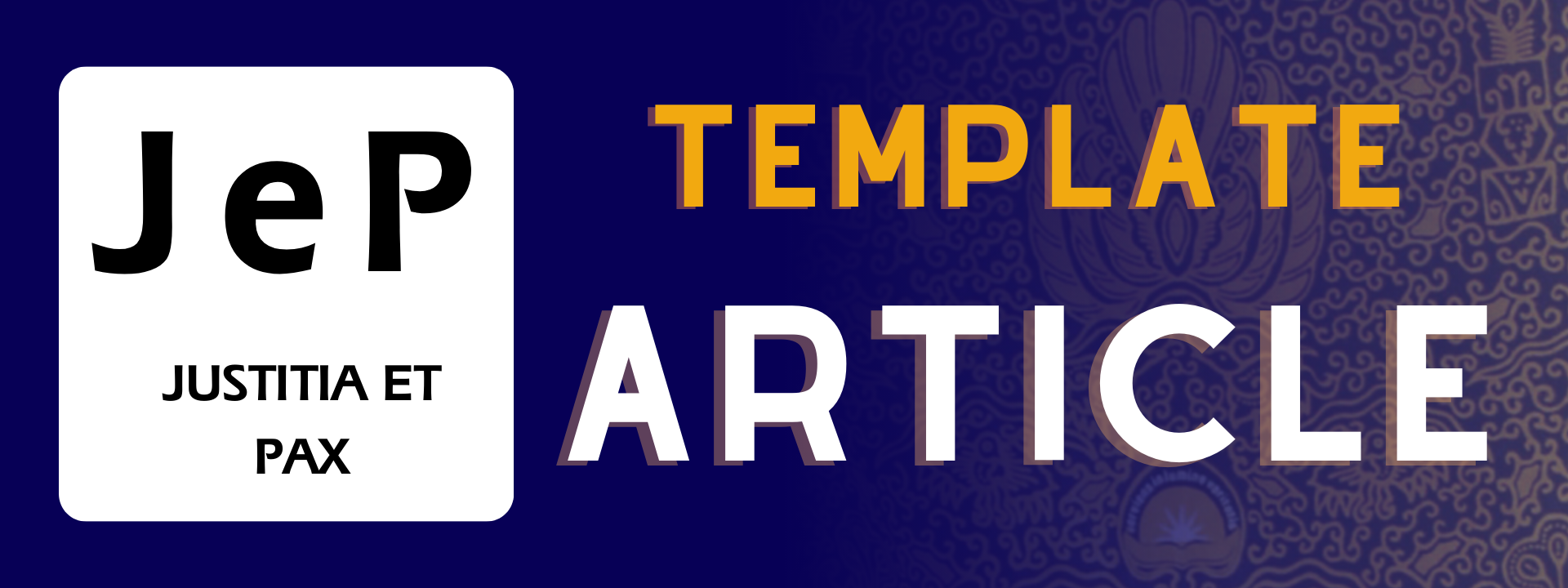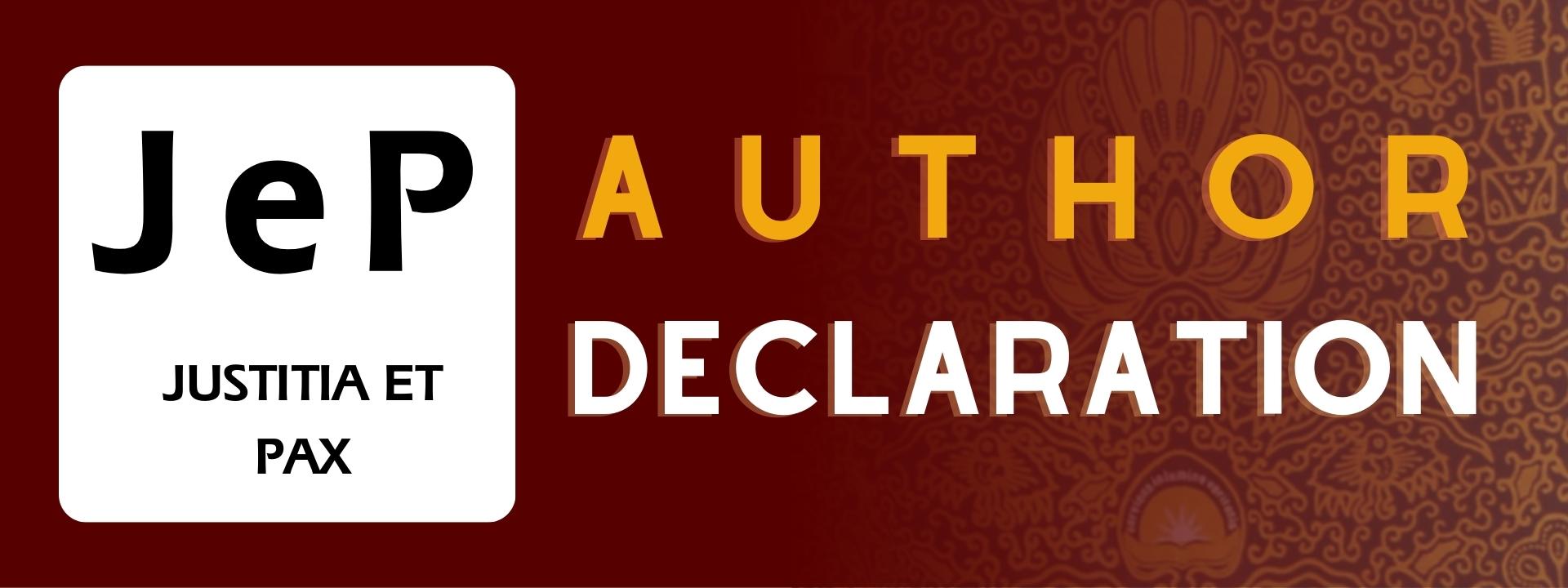PENERAPAN PRINSIP GOOD GOVERNANCE DALAM PERATURAN PENGELOLAAN PERIKANAN YANG BERKELANJUTAN DI INDONESIA
DOI:
https://doi.org/10.24002/jep.v35i1.2190Keywords:
Sustainable fisheries management, Good GovernanceAbstract
This study aims to know and analyze and examine the realization of good governance principles in fisheries management regulation in Indonesia; analyze and formulate the ideal fisheries management regulation model in accordance with the concept of good governance.
This research is normative juridical research, which is research that puts law as a building of norm system, consisting of principles, norms, rule of law, judgment, agreement, and doctrine. The approach used in this normative legal research is the statute approach and the conceptual approach. The data obtained were analyzed by qualitative method.
Based on data analysis, it can be concluded that 1) Realization of 8 Main Characteristics of good governance according to UNESCAP are participation, orientation on consensus, accountable, transparent, responsive, effective and efficient, fair and inclusive and follow the rule of law in law, and efficient that cannot be applied; 2) The ideal fisheries management model in accordance with the principle of good governance is a co-management model, because this model use community empowerment and involve all stakeholders as well.
References
Kementerian PPN / BappenasDirektorat Kelautan dan Perikanan, 2014, Kajian Strategi Pengelolaan Perikanan Berkelanjutan, Jakarta.
Abdullah Sayidin, 2014, “Prinsip Efisiensi dalam Peradilan Tindak Pidana Perikanan”, Fiat Justisia Jurnal Ilmu Hukum, Vol. 8, No. 3, hlm. 484
Komite Nasional Kebijakan Governance, 2008, Pedoman Umum Good Public Governance Indonesia, Komite Nasional Kebijakan Governance, Jakarta
Pusat Data Statistik dan Informasi Kementerian Kelautan dan Perikanan, Informasi Kelautan dan Perikanan, Bulan Januari 2016 No: 01/PUSDATIN/I/2016, hlm 19-20
Setiawan, Iwan,2007, “Analisis Ketergantungan Daerah Perikanan Sebagai Dasar Pelaksanaan Program pemberdayaan Nelayan: Studi Kasus di Kabupaten Cirebon dan Indramayu”, Buletin PSP, Volume XVI, No. 2 Agustus 2007
Zamzami, Lucky, 2015, Partisipasi Masyarakat Nelayan Dalam Pengembangan Budaya Wisata Bahari di Kabupaten Agam, Program Penelitian Hibah Komeptisi DIPA FISIP UNAND Tahun Anggaran 2015
Undang-Undang Nomor 31 Tahun 2004 tentang Perikanan (Lembaran Negara Republik Indonesia Tahun 2004 Nomor 118, Tambahan Lembaran Negara Republik Indonesia Nomor 4433).
Undang-Undang Nomor 45 Tahun 2009 tentang Perubahan Atas Undang-Undang Nomor 31 Tahun 2004 tentang Perikanan (Lembaran Negara Republik Indonesia Tahun 2009 Nomor 154, Tambahan Lembaran Negara Republik Indonesia Nomor 5073).
UU Nomor 7 Tahun 2016 tentang perlindungan dan pemberdayaan nelayan, pembudi daya ikan dan petambak garam (Lembaran Negara Republik Indonesia Tahun 2016 Nomor 68)
Peraturan Pemerintah Nomor 60 Tahun 2007 tentang Konservasi Sumber Daya Ikan (Lembaran Negara Republik Indonesia Tahun 2007 Nomor 134)
Badan Pusat Statistik, “Data BPS 2015”, BPS.go.id diakses tanggal 17 Juli 2017
Harian Digital Bisnis.Com, “Pemerintah Gandeng LSM Kampanye Konservasi Kelautan”, http://surabaya.bisnis.com/read/20160221/8/86730/url diakses tanggal 12 September 2017
Hemat Dwi Nuryanto,2010, “Sistem Informasi Kelautan dan Perikanan”, http://nasional.kompas.com/read/2010/04/22/1139002/sistem.informasi.kelautan.dan.perikanan diakses 11 September 2017
Kementerian Kelautan dan Perikanan, Tahun Tidak Diketahui, “Sistem Informasi Geospasial Kementerian Kelautan dan Perikanan”, http://www.sig.kkp.go.id/ diakse 11 September 2017
United Nations Economic and Social Commision for Asia and The Pacific, 2009, “What is Good Governance”, http://www.unescap.org/sites/default/files/good-governance.pdf, diakses 11 September 2017
Downloads
Published
Issue
Section
License
Authors who publish with this journal agree to the following terms:
- Authors retain copyright and grant the journal right of first publication with the work simultaneously licensed under a Creative Commons Attribution License that allows others to share the work with an acknowledgement of the work's authorship and initial publication in this journal.
- Authors are able to enter into separate, additional contractual arrangements for the non-exclusive distribution of the journal's published version of the work (e.g., post it to an institutional repository or publish it in a book), with an acknowledgement of its initial publication in this journal.
- Authors are permitted and encouraged to post their work online (e.g., in institutional repositories or on their website) prior to and during the submission process, as it can lead to productive exchanges, as well as earlier and greater citation of published work (See The Effect of Open Access).

This work is licensed under a Creative Commons Attribution-NonCommercial-ShareAlike 4.0 International License.




















